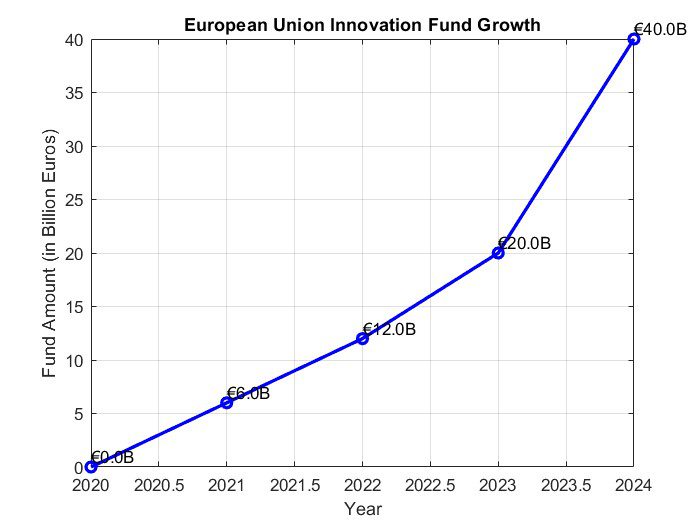Green Innovation Fund:
Europe’s ambitious plans for a zero-carbon economy by the middle of the century are facing early hurdles, casting doubts on the effectiveness of the €40 billion Innovation Fund. This fund, designed to propel innovative green technologies, has encountered setbacks, particularly in manufacturing and hydrogen sectors.
Launched four years ago, the Innovation Fund has allocated over €6 billion to scale up clean technologies, with projects ranging from green steel plants to hydrogen production facilities. However, some projects have faltered, with manufacturers facing closures and layoffs despite substantial funding.

Kurt Vandenberghe, director general for climate at the European Commission, acknowledges that not all projects will succeed due to inherent risks in innovation. While failed projects may result in lost time for decarbonization efforts, they also offer valuable learning experiences.
Funding for the Innovation Fund comes from polluting industries under Europe’s cap-and-trade emissions trading system. However, the lure of attractive subsidies in the US and competition from cheap Chinese products pose challenges for European manufacturers.
For instance, companies like Freyr Battery Inc. and Meyer Burger Technology AG have redirected investments to the US, citing more favorable conditions. Meanwhile, projects in the hydrogen sector face economic viability issues, as green hydrogen production remains more expensive than conventional methods.
Despite challenges, some projects in regions with abundant renewable energy sources show promise. Australian mining giant Fortescue Ltd. plans to produce hydrogen in Norway using hydroelectric power, demonstrating the potential for success in areas with ample green electricity.
As Europe adapts its strategies, it has launched new initiatives like the Hydrogen Bank to support green hydrogen projects. Unlike the Innovation Fund, the Hydrogen Bank prioritizes market-driven selection based on price, aiming to leverage competitive forces for innovation.
The early struggles of the Innovation Fund highlight the complexities of transitioning to a sustainable economy. While setbacks are inevitable, Europe’s commitment to innovation and decarbonization remains unwavering.
By navigating challenges and embracing opportunities, Europe aims to realize its vision of a greener, more resilient future.
Also read: Will the Future of Transportation be Fueled By Hydrogen?

















